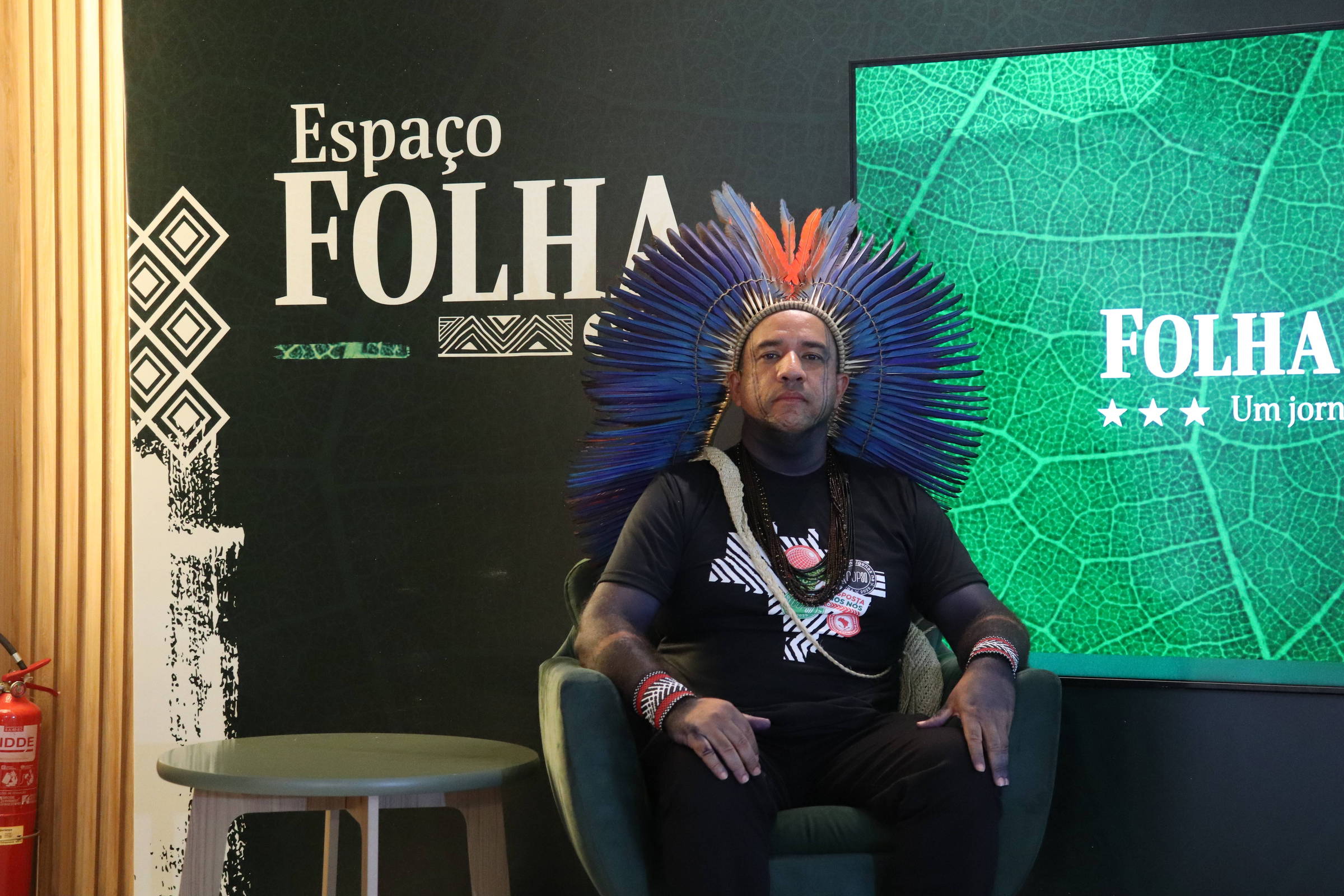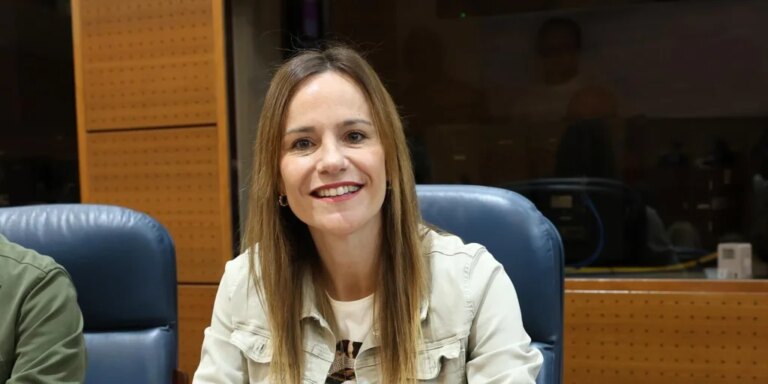
Dinamam Tuxa, executive coordinator of Apiv (Brazil’s Council of Indigenous Peoples), said in an interview that halting climate change requires meeting the demands of each country’s indigenous peoples. sheet.
The lawyer is participating in the United Nations (UN) Climate Change Conference COP30, which opened in Belem on Monday the 10th. This year’s summit is expected to have the largest number of indigenous peoples participating in the summit’s history.
In an interview at Espaso Folha in Belém at the beginning of the conference, Mr. Tusha spoke about the struggle of indigenous peoples to protect the climate and his hopes for the outcome of COP30.
How was the indigenous movement preparing for COP30?
Since announcing Belem as the host of COP30, we have mainly developed proposals to contribute to the discussion on negotiations. But there is always a focus on demarcating indigenous lands as a strategic policy to contain the climate crisis.
So, in a very systematic way, we were able to not only build a clear articulation, but also have an important impact on the indigenous movement, in order to realize a clear and integrated proposal.
Apib also attended other editions of the conference. How did the dialogue develop and what do you expect from this COP on Amazon?
I think the COP at Amazon is already a historic milestone and has very important symbolism. While the world is talking about biomes, the world needs to understand what is happening in the Amazon in the face of mining and oil exploration.
Additionally, we will focus on other Brazilian biomes that need to be on the agenda of climate change negotiations, such as Caatinga, Atlantic Forest, Cerrado, Pantanal, and Pampas.
In April, indigenous movements launched a proposal for NDCs, the Paris Agreement term for national climate goals. What are your main requirements?
Brazil’s indigenous movement built our NDC proposal, in which we took seven axes and the delimitation of indigenous lands as central demands. We also discuss a just energy transition as we end fossil fuel exploration.
We also discuss debates about the role of indigenous traditional knowledge in conservation, direct funding for climate change organizations, and protecting indigenous leaders who are threatened and killed defending their territories.
How does demarcation of indigenous lands contribute to biome conservation?
Indigenous peoples currently protect 82% of the world’s biodiversity. Therefore, our way of life, our worldview of life makes our relationship with our territory a relationship of protection, a relationship of care.
Firstly, it is for our survival. When we protect our territory, there are humanitarian benefits as a result. Protected areas are actually tackling climate change.
How important is climate finance for indigenous territorial management and the protection of Brazil’s biomes?
Several fundraising initiatives are underway. At COP26 held in Glasgow, US$1.7 billion in climate change funding for indigenous peoples was announced. Unfortunately, this funding never arrived.
But still, we continue to do what we have always done: protect our territory. This funding is meant to enhance the work we are already doing naturally, because it is what we survive on.
The Pledge announced in Glasgow therefore reflected investors’ positive points, announcements and focus on those fighting climate change: indigenous peoples and traditional communities.
We have now reached a point where climate is more important than COP26. We need to create more effective actions and measures and strengthen the actions of those who have already proven to do this very effectively. The answer is us.
Indigenous peoples want their voices to be heard with decision-making power. Should the UN change the format of its climate conferences?
We believe that the COP has not been successful in that its goals have not been achieved because the negotiators are technologists, have no experience in the region, and are unable to visualize the effects of climate change in practice.
They read and research the effects through satellites, books, and bibliographies. The indigenous people watch the river being renovated as the rainy seasons change. The fire that is occurring changes the flow of water and the contaminated space. Negotiators who engage in negotiations in the technical and political realms do not have the experience.
So bringing indigenous peoples and other demographics into the negotiations is (necessary) so that they can actually visualize our experiences. We are the ones who will pay the price for the climate crisis, so we need to ensure that the climate goals we are negotiating and developing have the right people in them, people who have lived the process of climate change in action.
Recently, the federal government approved oil research on the equatorial edge of Amapá. How does the indigenous movement view this measure coming from the same government presiding over COP30?
Brazil lives in a very contradictory situation. We understand that this has a very strong connection with the actions of the National Assembly, but also with the political decisions of President Lula in the executive branch. So, at the same time as he gives a speech about global leadership on climate change, he also makes a clear statement about oil exploration in Foz do Amazonas state.
That’s contradictory. And we said this in every field. A government cannot become a world leader in environmental protection by authorizing mining and oil exploration in the Amazon. Therefore, we understand that speech and actual action are two different things.
What does a just energy transition look like for Indigenous peoples?
To be fair, the energy transition requires public participation. Today, large corporations are responsible for this debate about the energy transition. In fact, they say Brazil’s Petrobras is leading the way. It’s a contradiction.
The energy transition requires people to have access to this energy. We have seen some communities without even access to energy being affected by large-scale projects.
Therefore, talking about the energy transition means first ending the exploration of fossil energy. And think about clean energy alternatives that have less impact on the population and allow people to take advantage of these policies.
At this COP, as well as at other COPs held to date, many companies with a history of impacting indigenous peoples are participating. How would you rate this situation?
Unfortunately, that’s the reality. The oil industry has had a very strong presence in the last three COPs held in countries (Egypt, United Arab Emirates, Azerbaijan) that have strongly lobbied against companies that rely on oil, produce carbon footprint impacts, and contribute to global warming.
The oil industry has the largest delegation to the COP. If it were a country, it would be the largest delegation. We understand that conferences are democratic forums and there are pros and cons, but there should be no disparity in participation.



